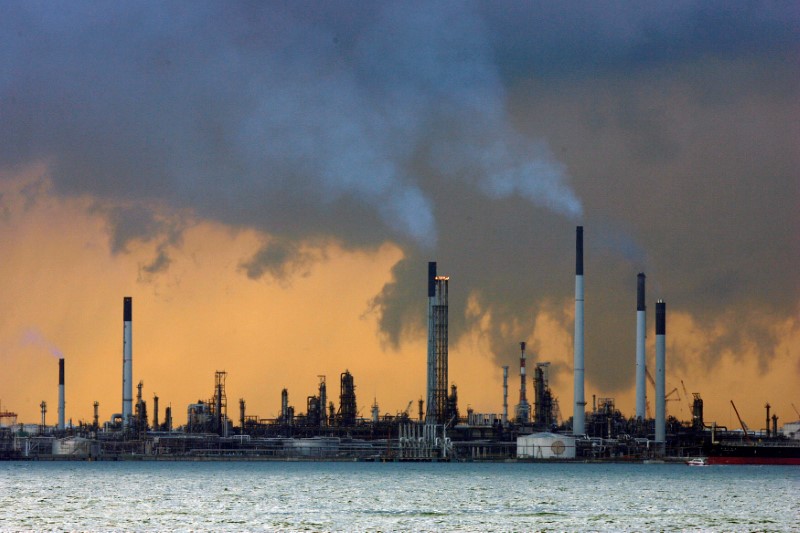(Bloomberg Opinion) -- Saudi Arabia is set to do very nicely from President Donald Trump’s tougher oil sanctions on Iran.
The Arab kingdom is poised to raise its own output to meet all requests for oil purchases it has received for June, notably from countries that have had to stop buying Iranian crude. Other Persian Gulf Arab countries with spare production capacity — Iraq, Kuwait and the U.A.E. — will almost certainly follow suit.
Saudi Arabia has plenty of room to boost its output without breaching the production targets it agreed for the first half of 2019 as part of the OPEC+ deal to manage oil supplies. That arrangement gave the kingdom a target of 10.3 million barrels a day. Output in April was more than 500,000 barrels a day below that level.
The other Arab producers are not in that position. For them, boosting supplies means breaching the terms of December’s agreement. That is unlikely to stop them from taking advantage of Iran’s difficulties.
The crude from around the Persian Gulf is a much better substitute for the sanctioned Iranian barrels — both in terms of quality and location — than additional U.S. supplies. The extra output will offset some of the upward pressure on oil prices from the loss of Iranian barrels.
But not all of it. These countries don’t want to undermine oil prices and are being more cautious with this latest round of sanctions. Last year, they boosted output in anticipation of tough U.S. restrictions that were billed as cutting Iranian exports to zero, only to be caught out by the exemptions that permitted it keep exporting at least a million barrels a day. This time around they will only react to real shortages and actual requests for higher volumes from their customers in order to avoid flooding the market with unwanted crude and depressing prices.
Pumping these extra barrels is no act of selfless generosity. They are extracting a high price for their collaboration with the U.S. by raising official selling prices to multi-year highs.
The Persian Gulf OPEC countries don’t set outright prices for their exports. Instead, they set differentials to regional benchmark crude grades. It is those benchmarks, traded on commodity exchanges, that determine the actual price of their oil. Saudi Arabia uses the Argus Sour Crude Index — a proxy for high-sulfur grades from the Gulf of Mexico — for sales to America, the Brent-derived Bwave for Europe and an average of Dubai and Oman grades for Asia.
Asian buyers like China, South Korea, Japan and India, the ones most affected by end of the sanctions waivers, are paying the most since 2013, relative to their benchmark, for Saudi Arabia’s Arabian Medium crude grade. This is the one that is most similar to the sanctioned Iranian barrel. Relative prices in Europe and the U.S. are the highest in more than a decade.
It’s not just Saudi Arabia that is making the most of Iran’s woes. Iraq raised the official selling price of its flagship Basrah Light crude for Asian customers to the highest level since 2012, while offering a heavier grade at the smallest discount since it was introduced in 2015. Kuwait’s export price to Asia is at its highest in more than five years.
Their ability to extract higher prices reflects the relative shortage of heavier, sour crude resulting from U.S. sanctions on Iran and Venezuela, a steep drop in Mexican production and the recent contamination of Russian exports to Europe. Most of the refineries built in Asia in recent years weren’t designed to process the stuff that is now pouring out of the U.S. shale patch.
Another advantage for the region is that it is a much shorter journey to deliver oil to Asia from the Middle East than from America. That will keep demand strong for additional barrels from Saudi Arabia and its friends, and allow them to keep cashing in on Trump’s economic war on Iran.
